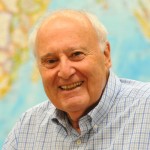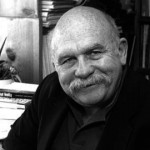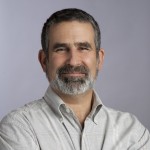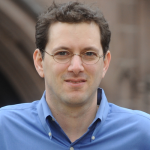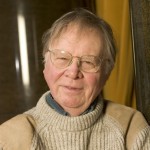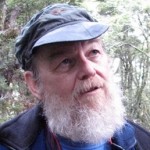Awards and Honors
Our scientists are explorers, innovators and leaders in their fields. Each year, they and their contributions to Earth science are recognized by the international scientific community. Among the many awards bestowed upon our researchers during the last year, the following are particularly noteworthy.
- Maureen Raymo
- Arnold Gordon
- Walter Pitman
- Peter Kelemen
- Adam Sobel
- Wallace Broecker
- Roseanne D’Arrigo
- Ed Cook
Maureen Raymo, a climate scientist who suggested how mountain building can lower Earth’s thermostat and why ice ages sometimes wax and wane at different speeds, has been awarded one of geology’s oldest and most coveted prizes: the Wollaston Medal of the Geological Society of London. The first woman to win a Wollaston in the award’s 183-year history, Raymo joins the company of Victorian giants Charles Darwin and Louis Agassiz and major 20th-century figures, including climatologist Sir Nicholas Shackleton and Lamont’s own Wally Broecker. Raymo received the medal at the Geological Society’s annual meeting in June.
Raymo also received the 2014 Milutin Milankovic Medal, awarded by the European Geosciences Union, for her intellectual leadership in paleoceanography and her landmark publications in Cenozoic climate evolution, chronology and astronomical climate forcing. “In an age of progressive research specialization, Raymo remains a model of interdisciplinary research,” reads the award citation.
Two longtime Lamont oceanographers, Arnold Gordon and Walter Pitman, were named fellows of the American Association for the Advancement of Science (AAAS) and were formally recognized at the association’s annual meeting in Chicago in February 2014. AAAS honored Pitman for his “pivotal role in the development and acceptance of the theory of plate tectonics” and Gordon for his “pioneering, novel contributions to understanding ocean circulation, the role of the ocean in climate variability, and leadership in international collaboration in ocean sciences.”
Peter Kelemen, a geologist who studies magmatic processes in Earth’s mantle and crust and, more recently, the possible uses of exposed mantle rocks in battling climate change, was elected to the National Academy of Sciences. Membership in the National Academy, given for excellence in original scientific work, is one of the highest honors awarded to engineers and scientists in the United States.
Adam Sobel, an atmospheric scientist who investigates extreme weather and climate change, was awarded the 2014 AGU Atmospheric Sciences Ascent Award. Established in 2012, the mid-career award recognizes excellence in research and leadership in the atmospheric and climate sciences.
Climate scientist Wallace Broecker was honored with the Dean’s Award for Distinguished Achievement at the 2014 Columbia University Graduate School of Arts and Sciences Ph.D. Convocation Ceremony. An alumnus of Columbia, Wally has been a fixture in the Lamont community for more than 55 years. “Wally’s pioneering research into the process of climate change has influenced generations of scholars and brought one of the foremost issues of the 21st century to global attention. Wally’s research has made significant contributions to our understanding of the forces underlying both gradual and sudden climate change,” said Klaus Lackner, then the Ewing and J. Lamar Worzel Professor of Geophysics at Columbia, who presented Broecker with the award.
Two of our Tree-Ring Laboratory scientists received major awards from the Tree-Ring Society at the 2014 International Conference on Dendrochronology. Rosanne D’Arrigo received the Jose A. Boninsegna Frontiers in Dendrochronology Award for “advances in dendroclimatology both thematic and geographical,” and Ed Cook received The Harold C. Fritts Award for Lifetime Achievement in Dendrochronology for “his significant influence on dendrochronology, emphasizing innovative research that has advanced the field, distinguishing it among our peer sciences.”

